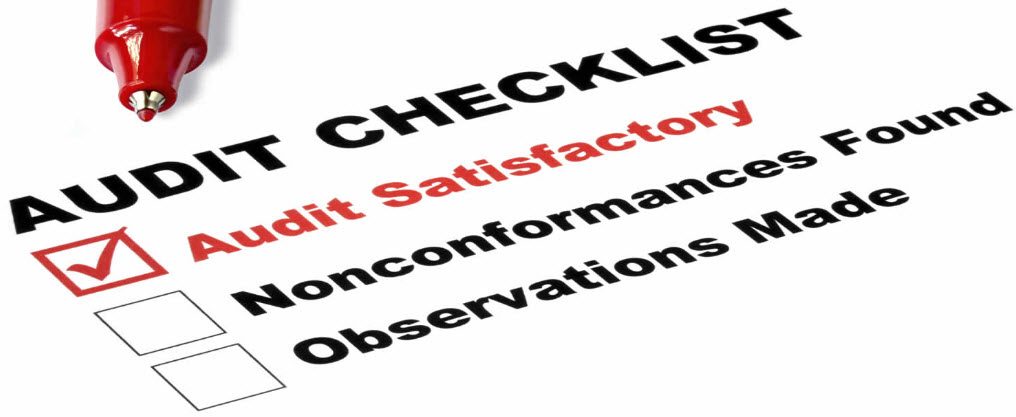EQMS Blog

What Is The Role Of An ISO Auditor
It’s a known verity that established standards like ISO 9001 are developed by the International Organization for Standardization. However, the certification of those standards is not given to the organizations; at this instance the involvement of third-party auditors is required. Basically, third-party auditors are accredited entities (Certification Bodies) that conduct audits and the concerned organizations are issued required certifications. All management standards regarding quality, health & safety and environmental aspects call for audits in order to meet monitoring purposes so a certified report on the management system effectiveness with legitimate value can be presented.
Accreditation of Certification Bodies
Now when we talk about the accreditation of the certification bodies, this comes to a different independent body (Accreditation Body) which is set for each individual country. For example the appointed body for UK is UKAS, who is validating the certification body’s ability along with the worldwide standards. In simple terms, accreditation is an authorized acknowledgment that a particular certification organization is functioning in line with international standards. Despite the fact that it is not essential to turn into a certification body, still it’s a confident approach to assume that majority of the reliable certification bodies will hold accreditation. When all’s said and done, when it comes to the ISO quality audit we will see a third party assessing the reliability and value of a business practices. These auditors do a comparison of the results regarding said practice to the intended activities, and evaluate their linkage. In a nutshell, it means ensuring that an organization is actually doing what it is saying to be doing.
Role of an ISO Auditor
An ISO Auditor is very helpful for revealing those areas of improvement that require an organization’s attention. Hence, ISO Auditors can be a good source of providing us with the opportunity of overcoming our shortcomings from the routine details and to observe the overall business practices with fresh eyes and new perspectives. All phases of production are inspected by the quality auditors, comprising raw materials evaluations, manufactured processes and completed goods. In order to confirm that products meet recognized standards of exterior or performance, qualified quality auditors watch over and manage testing. For certification purposes there are different requisites of diversified levels of work experience as well as formal education. Even though the least education considered necessary for this job is a high school diploma, but accomplishment of some post secondary project can cover for work experience for fulfilling the certification conditions.
Furthermore, a quality auditor looks over the functionality, alignment and physical exterior of a product. These audits can consist of flavour, aroma or touch in the event of food reviews. There duties also consist of evaluating the course forming the production procedure, in addition to reviewing and rectifying inspection tools like calipers, scales and other equipment’s for testing purposes. Qualified quality auditors control teams of assessors and join in the audits for quality control. Other than managing audits recognized by ISO they also form testing parameters particular for the organization. Certified auditors compose their reviews in writing that address the number of products being accepted and banned after the completion of testing process. This report is provided to the product administrators accompanied by the preventive suggestions for the identified shortcomings.
It is important to consider that it is not possible for the ISO auditor to look at the whole thing. Therefore, there training includes looking for main signs that reveal the all-embracing quality standards for the entire business entity. Looking for these signs will make sure that our ISO audit works in a smooth way and that an organization has offered the finest version of its QMS (Quality Management System).
It must be kept in mind that the main motivation for linking quality standards with the employee’s tasks is to line up an entity’s QMS with improvement ownership at individual level. Additionally, an additional component of employee’s interaction with the standard procedures is their capability to participate in counteractive arrangements for the improvement of overall business activities. It is an important role of an auditor to look for the abilities of company’s workforce and their will to offer productive feedback in order to implement improvement measures.
Please contact us if you are looking to implement an ISO management system within your organisation or improve an existing one. We can provide a free non obligated consultation with one of our ISO 9001 consultants.

Request a free consultation
Contact us to discuss your needs and see how we can support to reach your goal.

Recent posts

In today's digital age, businesses are constantly exposed to various cyber threats. As a result, companies must adopt a proactive approach to cybersecurity to prevent data breaches, theft, and other...

Quality management systems are essential in ensuring that organisations can deliver quality products and services consistently. The International Organisation for Standardization (ISO) developed the ISO 9001 standard to help organisations...

ISO 14001 is a globally recognised standard for environmental management systems (EMS) that helps organisations manage their environmental impact and improve their sustainability performance. Obtaining this certification demonstrates a company's...
Just a Few of Our Clients
Request a Free Consultation
Contact us to discuss your needs and see how we can support to reach your goal.












